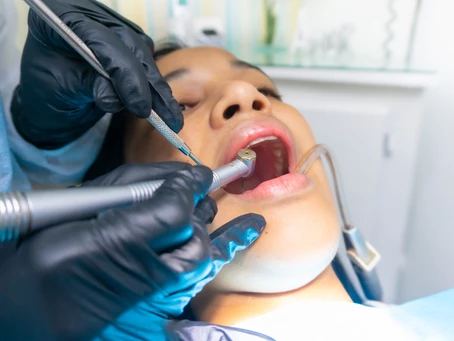Lots of people feel a little bit nervous when it’s time to sit in the dentist’s chair. But for some that feeling isn’t just a case of the jitters, it’s real fear. In fact, around 1 in 10 people avoid getting any dental treatment at all due to these feelings of dread. And that’s a shame, because putting off needed care can seriously affect health and self-esteem.
Modern dentistry has developed a number of ways to bring that fear under control. To help you relax beforehand, to make time in the chair seem to pass quickly, and to ensure that you have little or no memory of the procedure when it’s over. Sound good? Well, that’s what Sedation Dentistry is all about.
One of the simplest and most effective ways of easing anxiety in the dental chair is nitrous oxide. We don’t call it laughing gas anymore. Inhaled through a mask that fits over your nose, nitrous oxide is a short-acting but very effective way to bring on feelings of well-being and to let your anxiety dissolve away. Safely used by dentists for over 100 years. It’s appropriate for children and adults. And because it’s so easy to control the dose, its effects are tapered off right after your dental work is done with no hangover feeling afterward.
Another widely used sedative is oral sedation. This is medication in pill form you take before a procedure. Proven safe and effective, oral sedation gives you a feeling of peace and tranquility, and later you may have just a hazy recollection of what took place. Oral sedation is often used for longer or more complicated dental appointments, but it can also help you get through routine appointments, exams, and professional teeth cleanings. And because the medication is taken by mouth, it’s especially good for people who don’t like needles. For more complex procedures, or for those who need a deeper level of relaxation.
Another option is intravenous conscious sedation. Here precise levels of medication are delivered right into your bloodstream. You’ll still breathe normally and respond to verbal commands, but you’ll probably have no recollection of the procedure at all. Health professionals who use this method must have special training.
Monitoring equipment is also used to ensure that you are safe at all times. Before using some types of sedation, your dentist will evaluate your overall health and take a complete medical history, including any prescription or nonprescription drugs or dietary supplements you’re taking. When the procedure is over, you’ll need a ride home and take the rest of the day off from work. With help from sedation dentistry, your fear of the dentist can become a thing of the past.


